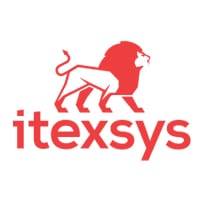Liquidity Providers
Forexware is a company that provides comprehensive financial solutions for a variety of Forex companies. The solutions are suitable for those who want to create a successful brokerage firm or those who want to update…
FX Connect is the market-leading location for Forex trading, efficiently support real money managers and hedge funds, manage multiple portfolios and connect with counterparties, streamline your global trading operations. As part of State Street’s market-leading…
FXSpotStream offers multi-bank FX and precious metal streaming services that support FX spot, forward, swap, NDF / NDS, and precious metal spot and swap trading. Banks related to FXSpotStream’s streaming aggregation venue act as a…
GTS is a market maker of stocks, other commodities, futures, forex and interest rate commodities. GTS trades above 10,000 commodities worldwide and accomplishes billions of transactions per day, applying years of authoritative technology-driven trading background…
IMMFX is an award-winning globular STP broker listed and authorized for online trading of Forex, precious metals, energy, stock indexes, individual equity, and cryptocurrencies. A company offers a variety of trading software and tools to…
Key Services:
-
Liquidity Providers:$1,000 - $8,000
-
MT4/MT5 Providers:$5,000 - $6,000
-
Broker's CRM:$2,000 - $5,000
-
Trader’s Room:$1,500 - $2,000
-
Trading Platforms:$5,000 - $150,000
Itexsys is a global technology provider for brokerages and funds. The company provides a wide range of services that improve the work of CFDs and Forex brokers.
Key Services:
-
Liquidity Providers:$1,000 - $8,000
-
MT4/MT5 Providers:$5,000 - $6,000
-
Broker's CRM:$2,000 - $5,000
-
Trading Platforms:$5,000 - $150,000
-
Risk Management:$500 - $3,000
Jivestor is an experienced White Label service provider. Jivestor can additionally assist companies in the process of brokerage creation and provide any services needed for the establishment.
Key Services:
-
Liquidity Providers:$1,000 - $8,000
-
Broker's CRM:$2,000 - $5,000
-
Trader’s Room:$1,500 - $2,000
-
Trading Platforms:$5,000 - $150,000
-
New Broker Setup:$3,000 - $20,000
Meta FX Solution is a Forex solutions provider for brokers. The company’s services are suitable for those who want to establish a new brokerage firm or those who are looking for value-added features for their…
Key Services:
-
Liquidity Providers:$1,000 - $8,000
-
MT4/MT5 Providers:$5,000 - $6,000
-
Broker's CRM:$2,000 - $5,000
-
New Broker Setup:$3,000 - $20,000
-
White Label:$5,000 - $15,000
Popcorn Technology specializes on providing white label brokerage solutions to novice and experienced brokers. It is possible to organize a new company and get all the necessary financial solutions with the help of Popcorn.
Liquidity Providers
Forex brokers or “market makers” act only as intermediaries between traders and exchanges, but often they themselves do not participate in trading but provide liquidity pool and receive income through commissions and providing funds to traders on credit. Forex brokers only provide traders with access to liquidity pools in the Forex markets.
Today, online currency trading or forex market is available to a wide audience, even if they have little capital. To trade almost any foreign currency, the user just needs to connect to the Internet and register a brokerage account.

What is liquidity in the Forex market?
Liquidity determines how quickly a trader can exchange one asset for another. For example, buy or sell TSLA shares for USD. This is one of the most important economic indicators reflecting the completeness of the sector. The faster it can be done with the least losses, the higher liquidity will be. High liquidity means:
- That the order book is dense enough so that asset volatility is relatively small and the price does not fall/grow too quickly;
- Low spread between the Bid and Ask prices;
- At any second, a trader can sell an asset at the current market price.
- Minimal delays in order execution and no slippage.
For example, a real estate purchase transaction can take from several days to several weeks. Therefore, real estate is considered a low-liquid asset. Forex or cryptocurrency transactions usually take less than a day – this is an example of assets with high liquidity. In fact, most often, trades are executed almost instantly or with small delays when using limit orders.

But this does not apply to all trading pairs. Some of them are less liquid, which means they are much more volatile than more traded pairs such as USD, EUR, GBP, BTC, ETH, and others. Particularly low-liquid pairs are sensitive to external events, economic data, and news, because of which quotes can suddenly change by a lot. Ultimately, this affects the risks that investors take, potential returns, and potential losses. Low liquid pairs can bring high returns, but the risk remains that the investor will lose a significant part of the capital. Accordingly, the less liquid the asset is, the higher the risks will be.
Signs of low-liquid exchange-traded assets:
Long delays
On the exchanges, orders can be processed for hours or not executed at all given sudden price movements. In this case, the owner runs the risk of not selling the cheapening share or cryptocurrency at the intended price.
High volatility
Sometimes the volatility of low-liquid goods reaches such values that it is impossible to establish actual buy or sell orders due to rapidly changing prices. This increases the time it takes to buy and sell on exchanges and also leads to additional inconveniences.
Big spread
The spread on low-liquid pairs can reach several percent, which makes them practically unsuitable for short-term transactions. The larger the spread, the more the price deviates from the market value. In this case, the investor will not be able to quickly sell the asset at the current price, and, as a result, the transaction may be postponed for a long time.

Forex liquidity providers
In addition to the broker and the trader, there is another market participant — a liquidity provider or a market maker. A liquidity provider supplies assets and currencies for trading, receiving income from the price spread when market participants buy and sell an asset.
What is a liquidity provider (market maker)?
A liquidity provider (market maker) is an individual or a company that owns a large volume of an asset. Liquidity providers are stable and trade by placing orders and controlling counterparty risk.
A liquidity provider is a user who funds a liquidity pool with crypto assets she owns to facilitate trading on the platform and earn passive income on her deposit.
Liquidity providers are financial institutions such as banks, mutual funds and hedge funds, private companies, large investors, and sometimes brokers themselves.

Why do they need to supply liquidity?
If liquidity provider (market maker) did not provide the markets with assets and currency, the order books would be practically empty, and the volatility would become much higher, due to which the price of an asset could change by 10% in a matter of seconds. In the short term, this would mean huge losses to clients.
Where to find a liquidity provider?
On the Finarm website, you will find reliable liquidity providers, market makers, and information on their key services. Finarm is a universal aggregator for FX & CRYPTO brokers that brings together the best liquidity providers.
Benefits of Finarm
Speed
With the help of the service, you can quickly find liquidity providers from the list.
Convenience
Easily find liquidity provider partners and suppliers through a convenient filter search.
Profitability
There will be no high advertising costs and high costs for other means of finding liquidity providers.
How Customers Access Liquidity
Retail investors cannot directly access exchange transactions of Tier 1 liquidity providers, i.e., banks and other financial institutions. They will need different products on different business models that brokerage companies provide.
Conclusions
A liquidity provider is an indispensable element in the liquid market that can provide greater price stability, without which currency volatility would have reached enormous values. On the other hand, these financial organizations that continually provide liquidity are not aimed at helping in trade but rely solely on their own profits.
Highly liquid markets provide fast selling at market rates, minimal delays in order processing on exchanges, and minimal spreads.








